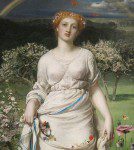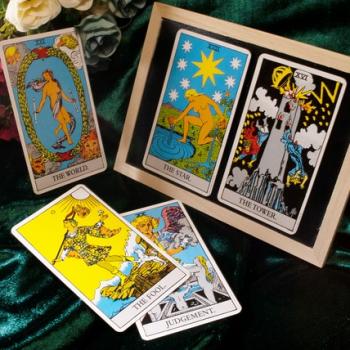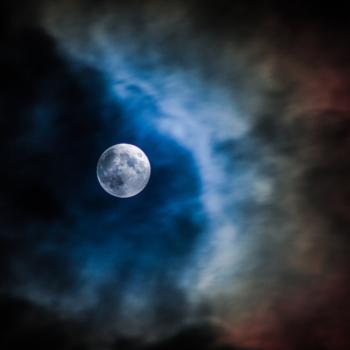There are now a lot of books written for and by contemporary Druids, compared to the amount of material available back when I started out along this path. In theory, that should make it easier for the new student to access information and develop their understanding. In practice it is often confusing – versions of Druidry proliferate, and there is a lot of difference between approaches. Reconstructionists have a whole different logic to their work from those whose Druidry is all about responding to the land. Bardic Druids are different from those who have been drawn to work in healing, feral Druids and philosopher Druids have their own ways. There are, no doubt, more kinds of Druidry out there than I have words for.
There are history books, some more speculative than others, about what the Ancient Druids got up to. I do feel strongly that every Druid should read Ronald Hutton’s Blood and Mistletoe, I think it’s a useful perspective. There is a lot of crazy fantasy history out there, building on an exciting blend of myths, lies, and overinterpretations. As a rule of thumb, the more confident a writer is about telling you, ‘This is how it really was in ancient times,’ the less reliable they are.
There are a lot of beginners books out there for all aspects of Paganism, and Druidry has plenty. Expect a crash course in the history of Druidry (which you can better assess if you’ve read Hutton), the eight main festivals in the Celtic Wheel of the year (there’s no evidence all eight were celebrated anywhere), and how to do rituals. You might get some Celtic tree Ogham (derived from Graves, with no basis in fact) and a rehashing of Welsh mediaeval fiction as religious text (there probably are survivals, but caution is required), a dash of material from Iolo Morganwg (he made stuff up and pretended it was ancient), and a few innovations from the author. There are of course some good books in the mix, and there are also books that were written before the above combination became some kind of norm. Too many Druid authors seem obliged to give a potted history, and if my experience as a reviewer is anything to go by, some do not know the subject well enough and should leave it alone.
What should a Druid read? Everything. By that I do not mean every modern book on modern Druidry, but every imaginatively and intellectually stimulating book you can get your hands on. I say this as someone who writes books about modern Druidry – there is more to being a modern Druid than Druid books. If we weren’t, in the Pagan community, so keen on peering into each other’s literary navals, we’d also get much more interesting books in the first place.
Druids could read history and landscape history in particular. Geology, geography, psychology, anything from the cutting edge of science. Literature, poetry, critical works, philosophy… how about art history, social sciences, fiction written in other times, political history, newspapers, social commentary, texts from other religions… all of it. Everything. Alongside that we also ought to be doing stuff, learning crafts, arts and skills – any craft, art or skill is fine. If that sounds like hard work, excellent! Druidry should not be a bit of time off on a Saturday afternoon. Druidry is a dedication. If the ancient Druids were the thinking classes of the Celtic peoples, then to read a couple of flimsy paperbacks by modern authors such as myself and think that’s enough really doesn’t seem good enough. We don’t demand enough of ourselves. We want the titles and the robes, but we don’t want the lifetime of study that ‘druid’ once meant.
If you aren’t a book person and you want to go the skills route – that’s fine. Study other things by other means. Perfect an instrument, become a skilled diviner, learn counselling skills. It’s all valid.
I have colossal respect for the Druids out there who are doing it for real. The historians. Those intrepid souls learning mediaeval Welsh so they can tackle ancient manuscripts. The tree planters, spinners, weavers, singers of songs, the ones who live and breathe their Druidry in the day job, and who work at it, deliberately. We should not be afraid to ask more of ourselves, to challenge ourselves to do more, and do it better.
If you want to be a Druid, study everything, and try to find study materials written by people who knew what they were talking about. Let’s get away from fantasies of Atlantis and other such works of speculative fiction and educate ourselves about the world we live in.
Druid Thoughts is published on occasional Wednesdays on Agora. Follow it via RSS or e-mail!
















